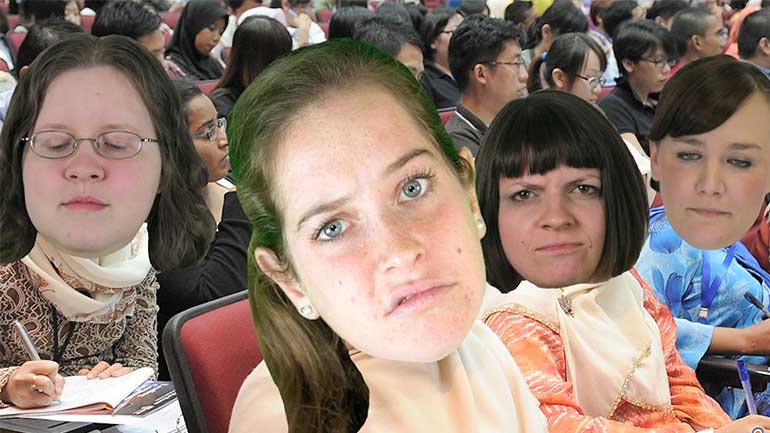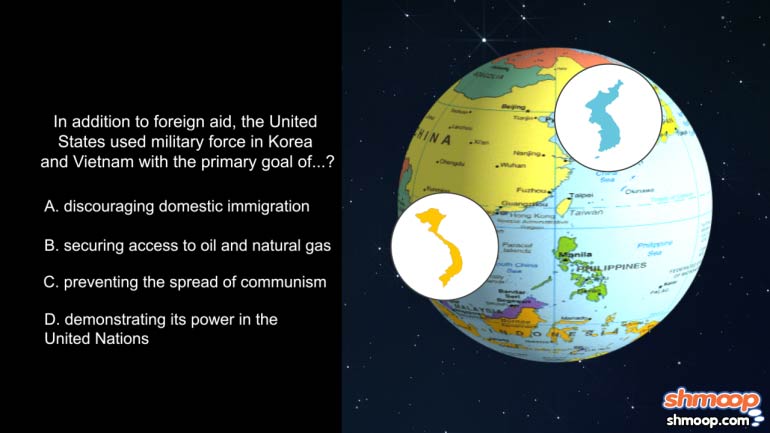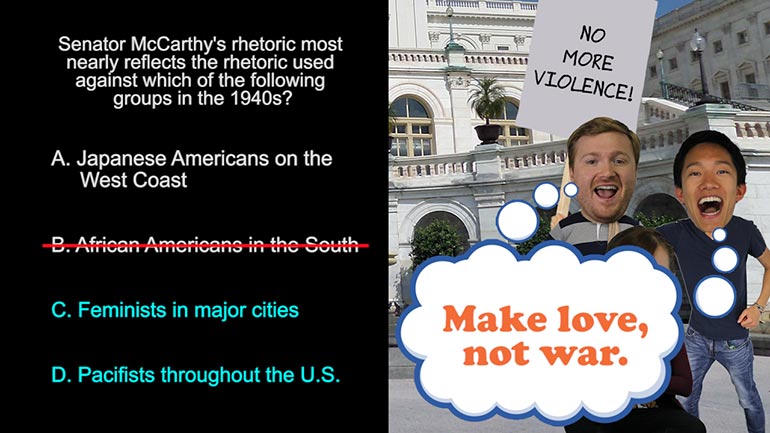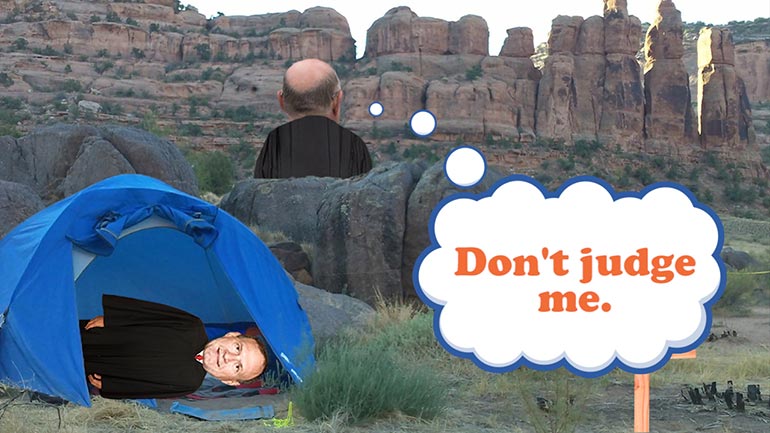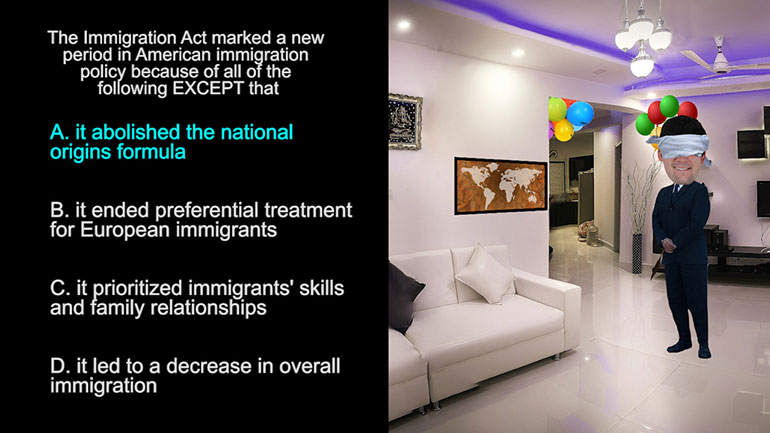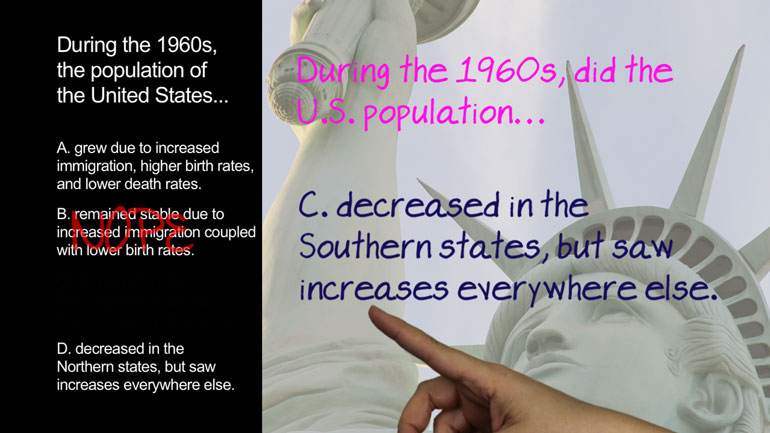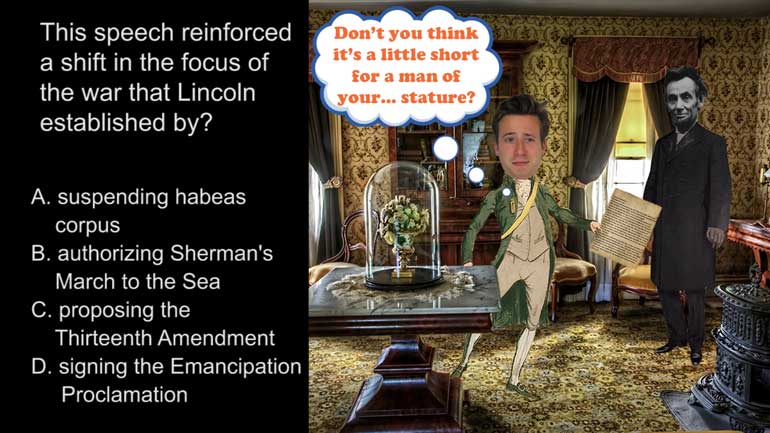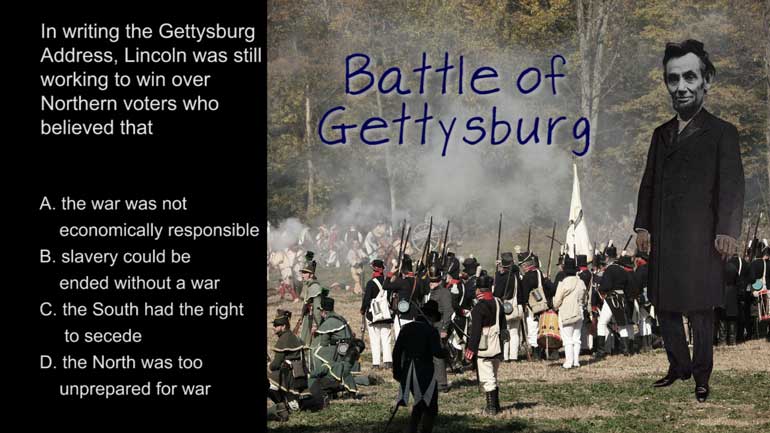ShmoopTube
Where Monty Python meets your 10th grade teacher.
Search Thousands of Shmoop Videos
Playlist U.S. History: 1945 – 1980 10 videos
AP U.S. History 2.1 Period 8: 1945–1980. Justice Warren's opinion most clearly reflects what development in thought about the relationship betwee...
In this AP U.S. History question read the excerpt and determine how it reflects on conceptual shifts in American Foreign Policy. AP U.S. His...
AP U.S. History: Industrial American in 19th Century Drill 1, Problem 5. In addition to foreign aid, the United States used military force in Korea...
AP U.S. History 2.1 Period 8: 1945–1980 211 Views
Share It!
Description:
AP U.S. History 2.1 Period 8: 1945–1980. Justice Warren's opinion most clearly reflects what development in thought about the relationship between white Americans and minorities in the 1950s?
Transcript
- 00:00
Sorry And here's your smoke du jour brought to you
- 00:05
by brown versus board of education The case against unexciting
- 00:10
teachers Okay And now the question justice warren's Opinion most
- 00:26
clearly reflects what development in thought about the relationship between
- 00:31
white americans and minorities in the late nineteen fifties And
Full Transcript
- 00:36
hear your potential answers All right well what can we
- 00:42
glean from justice warren's opinions Well he says that the
- 00:46
responsibility of the court is not to look at whether
- 00:48
or not schools separated by race work equal but rather
- 00:52
to look at the effect of segregation itself on public
- 00:56
education So let's keep that in mind as we look
- 00:58
to the answers it just is Warren's opinion reflect the
- 01:01
idea Aye That minorities could remain separate but equal toe
- 01:05
white americans separate but equal that's from the eighteen ninety
- 01:09
six supreme court case plessy vs ferguson which said that
- 01:13
segregation was legal so long as whites and blacks received
- 01:16
facilities and services of the same quality boiler alert It
- 01:20
was never equal And also justice warren specifically says in
- 01:24
his opinion that we need to move past that line
- 01:27
of reasoning that knocks out Eh Was warren's opinion reflective
- 01:30
of the new development Be that white americans had a
- 01:34
moral burden to support minorities Well morality was certainly factored
- 01:39
into the decision but brown v board of education's court
- 01:42
case was based on legal arguments against segregation for these
- 01:46
judges through the hole law book this one it warns
- 01:50
opinion argue d that giving minorities mohr civil rights threatened
- 01:55
america's prosperity from just the opposite In fact by trying
- 01:59
to dismantle segue creation justice has rejected the idea that
- 02:02
increased civil rights for minorities would hurt the country So
- 02:06
it's not deep All right that means that justice warns
- 02:09
opinion most clearly reflect the development See that white americans
- 02:14
and minorities should become more integrated So in brown v
- 02:19
board of education that justice is decided that separating students
- 02:23
solely based on their race encourage discrimination and they recommended
- 02:27
that society become more integrated So the answer is safe
- 02:31
Main lawyer In this case they're good marshal actually became
- 02:34
the first african american justice on the supreme court Not
- 02:38
bad justice marshall Not bad at all iraq
Related Videos
AP U.S. History Exam 2.45. The journey shown on the map was an example of...what?
AP U.S. History Exam 2.26. This speech reinforced a shift in the focus of the war that Lincoln established by...what?
What did the Spanish messengers bring with them to North America? Hint: you probably wouldn't be thrilled to get this for your next birthday.
AP U.S. History Diagnostic 24. How did the United States choose containment over the National Security Council Report in Latin America?
AP U.S. History Exam 2.25. In writing the Gettysburg Address, Lincoln was still working to win over Northern voters who believed that...what?
